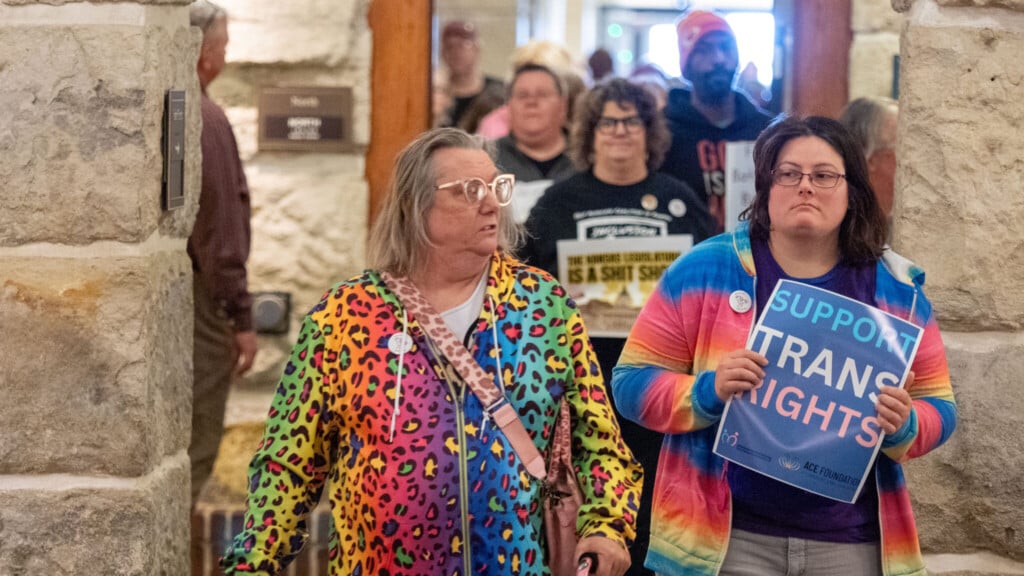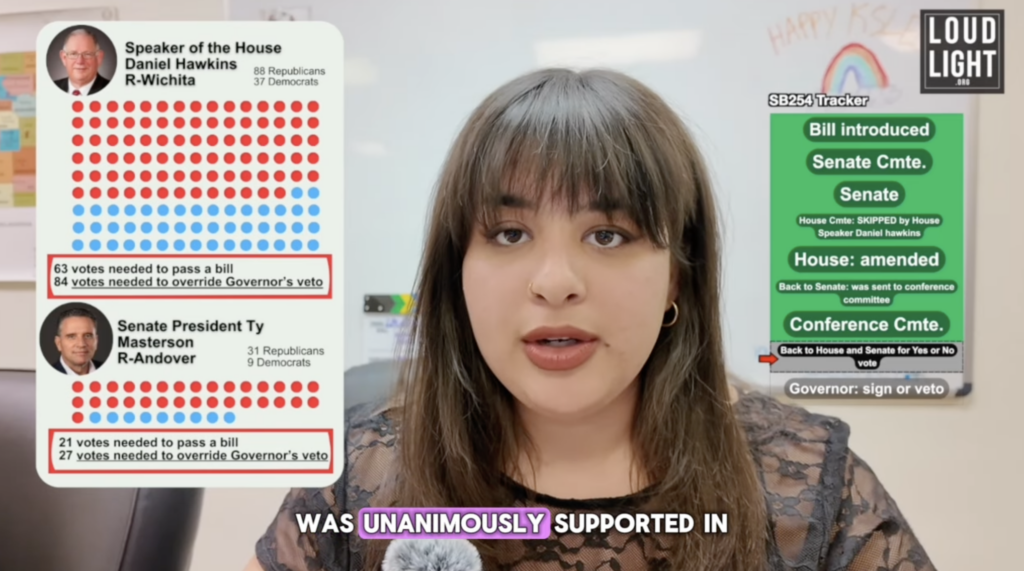Why did Jackson County’s ban on conversion therapy fail? Justin Horn shares his personal perspective behind the scenes on what went wrong
An ordinance banning conversion therapy failed to pass in the Jackson County legislature on Monday afternoon. Internal struggles held the ordinance in committee for 73 days, only to have it reach a vote wherein three legislators abstained, preventing the bill from securing the necessary votes, in an act that demonstrators are referring to as “sheer cowardice.”
Justice Horn, activist, and chair of the KC LGBTQ Commission, says he could have expected a few of the legislators to turn down the ordinance, but was astounded to see that three legislators abstained–denying to exercise their power to speak for themselves and their districts.
With a Democratic majority in the legislature and two Republican co-sponsors on the ordinance, it was set to pass. So what happened? Justice Horn walks us through the battle that was fought even to get the ordinance in front of the legislature and why it fell apart in a room full of victims and advocates who are left disappointed and puzzled by the conclusion.
On Jan. 9, 2023, a new Jackson County legislature was sworn into office, with many new swear-ins running on progressive ideals. The KC LGBTQ Commission saw this as their chance to appeal to a new, open-minded legislature and immediately sent a letter asking for them to ban conversion therapy in the county.
Jalen Anderson (1st district at-large) drafted the ordinance. Anderson, who has personal experience and lifelong trauma associated with conversion therapy in his youth, helped spearhead what was supposed to be a quick turnaround for getting the proposal in front of legislators. Justice Horn got to work the next day to gather co-sponsors. Jalen Anderson was a given, followed by Manuel Abarca IV (1st district), Jeanie Lauer (5th district), Sean Smith (6th district), and Donna Peyton (2nd district at-large).
The ordinance was handed off to the Diversity, Equity, and Inclusion Committee for review and recommendation to the legislature. While this version of Ordinance 5711 was passed around, Horn claims that it was given too much time for input from outside agencies, which he believes impacted legislators who may have originally been fully on board, now stuck with muddied language. Other members of the committee have suggested that the further work around the ordinance critical updates and insight, but also agreed that the time frame was longer than intended.
Shortly before the ordinance was put on the agenda for a vote, two of the co-sponsors came to Horn with cold feet. According to Horn, Smith and Peyton broke off, saying the ideas expressed in criminalizing conversion therapy went against religious ideals.
Horn says while this was disappointing, it wasn’t a surprise. However, he never expected three abstentions.
“The county voters elected you to represent them,” Horn said in a tweet following Monday’s vote. “You just ensured that they don’t have a voice in this no matter how you would’ve voted.”
Chair of the Legislature DaRon McGee and legislators Peyton and Huskey abstained. Smith was the only “no” vote—making the final count five for, one against, and three abstentions, which fell shorts of the six ‘yes’ votes required to pass the bill.
Horn believes dissent by Black legislators in general comes from a deep-rooted religious belief and culture in the community that influences them to suppress support for new ordinances that would ordinarily align with their political leaning. The greatest fear amongst the opposition, according to Horn, is that the county ordinance includes explicit enforcement procedures to punish people caught practicing conversion therapy.
Multiple cities in the state have already banned conversion therapy, including Kansas City, Independence, and Prairie Village, but Jackson would have been the first county. The city bans make the practice illegal, but they don’t have the specific language that allows offenders to receive fines or sentences. With no method of responding to infringement, does this even have any substance as a ban? In practice, no. And certainly not, moving forward without 57111.
Horn believes this distinction scared some legislators into withholding their vote, because the ordinance says offenders will be handled by the government and won’t be able to “hide behind the church” anymore.
We shouldn’t be protecting these offenders anymore, Horn says. This is an issue of child abuse that is happening in Missouri, and allowing conversion therapy gives religious institutions a way to ostracize people in the LGBTQ community.
Legislators who abstained from the vote have reported emails and phone calls from the community criticizing their lack of decision. At the time of publication, none of the aforementioned representatives have provided The Pitch with comment on the matter, but if they do the piece will be updated to reflect that.
Anderson and Abarca have committed to introducing the ordinance again.





